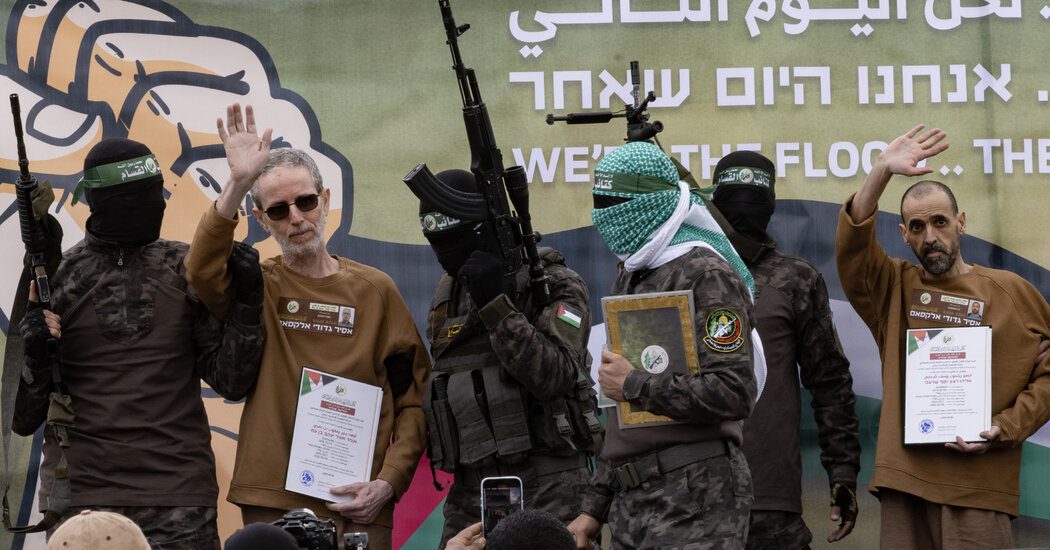
Harsh Realities of Hostages in Gaza: Families Raise Alarm
Recent reports from families of hostages taken in Gaza reveal harrowing conditions where captives are described as bound, starved, wounded, and tortured. This information was relayed to families from Israeli military and security officials following the release of three individuals by Hamas as part of a cease-fire agreement on Saturday.
The three hostages released during Hamas’s staged event in Gaza—Eli Sharabi (52), Or Levy (34), and Ohad Ben-Ami (56)—appeared severely emaciated, alarming relatives of other hostages. They are now advocating for the immediate continuation of the phased cease-fire arrangement. This call to action comes in light of Hamas announcing on Monday that it would delay the next release of hostages, which was initially scheduled for Saturday, citing violations of the cease-fire by Israel.
Prior to their transfer to Red Cross officials, where they exchanged places for 183 Palestinian detainees, these frail individuals were publicly displayed in Deir al-Balah, Gaza, holding Hamas-issued "release certificates" and reciting scripted messages, including gratitude toward their captors after enduring 16 months in captivity.
Medical professionals overseeing the care of the recently freed individuals reported that they were in poor health, with one being classified as having a "severe nutritional state," according to hospital officials handling their treatment.
Hamas maintains that it treats its captives humanely, yet the first phase of the cease-fire included an agreement by the group to release 25 living hostages and the remains of eight deceased individuals in exchange for approximately 1,500 Palestinian prisoners. So far, around half of this deal has been implemented.
In response to the treatment of prisoners, Hamas condemned what it described as "brutal treatment" by Israeli authorities. In their statement, they highlighted ongoing assaults and torture that disregard the age and health conditions of many detainees, asserting a clear disparity between the treatment of hostages and Palestinian prisoners.









